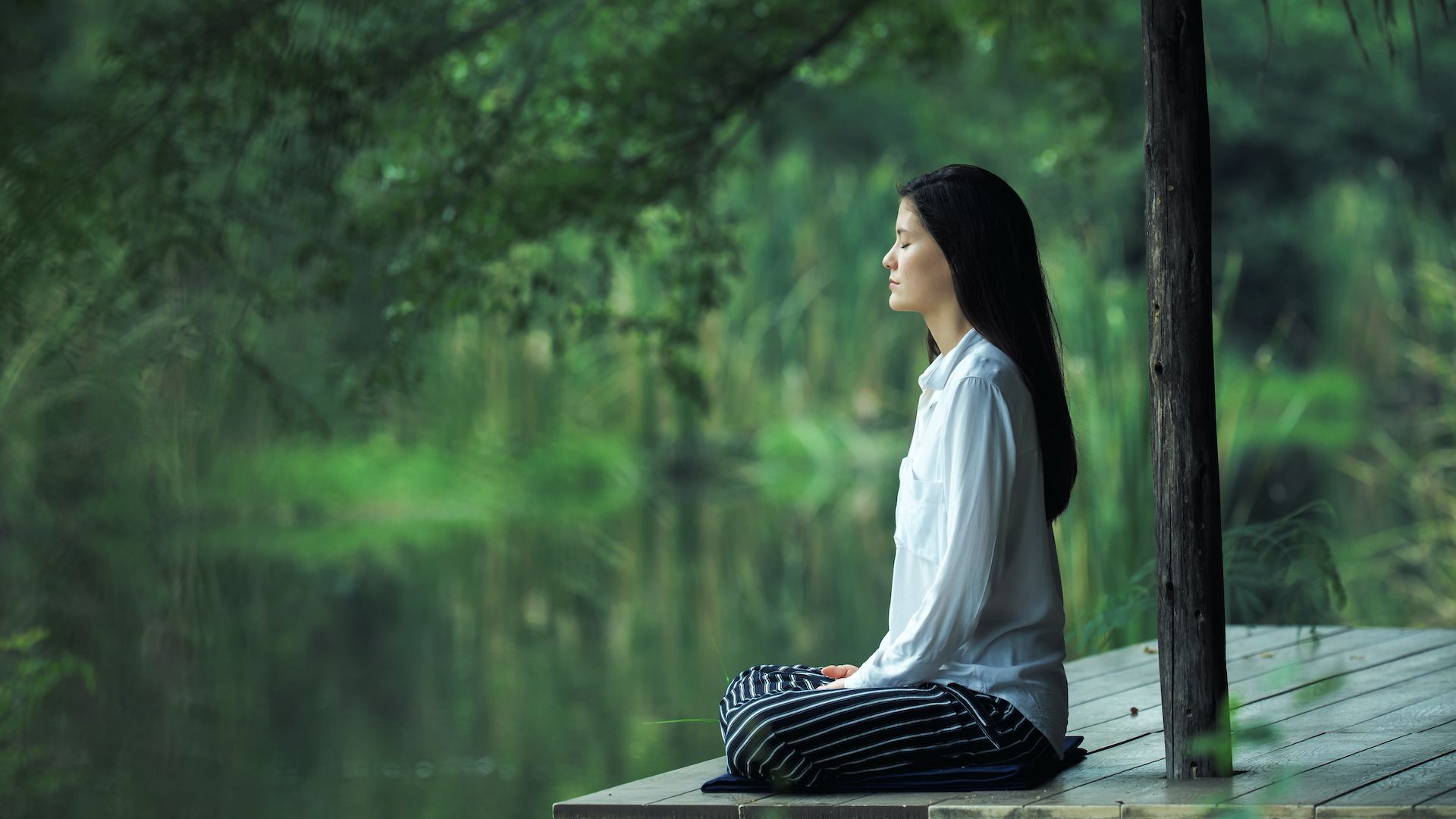2. Getting started with meditation

Episode 2 of The Meditation Course Handbook
The most important thing I can teach you isn't what to expect.
It's what not to expect.
What Not to Expect from meditation
Don't expect instant results - I teach some practices that yield instant results for some students, but for most of us, it just takes time.
In meditation, the greater the expectations, the slower the progress.
Don't expect a mental struggle. The practices that I teach are largely frictionless and they are taught in a frictionless way.
The best thing to expect in the meditations themselves, is nothing.
The benefits of meditation are subtle and appear in everyone's lives in a different way.
We don't measure our progress in meditation by the meditation itself. It's very unlikely that your motivation to meditate is about the practice itself. It's far more likely, that you're reading this to use meditation as a tool to improve your life.
We measure progress in meditation by the improvements in our life that it brings.
When, where, and how long to meditate
When
Meditate at the quietest time of your day, or your week. This is the time when there is the least pressure on you and when you're feeling the least stressed, worried, or anxious.
I feel there is too much emphasis on an early morning daily meditation practice. Not all of us can do it and none of us can do it all the time.
I would say that most of the people who can get out of bed early and repeat a regular meditation practice are already doing it.
I expect you don't come into this category. In my experience, this only accounts for about 5% of new meditators. For the rest of us, we need to meditate whenever we can.
I made the greatest progress in my meditation practice when I meditated once or twice a fortnight.
Regularity is helpful
Having a reasonably regular practice (daily, or if not at the same times and days each week) has benefits.
If you can meditate each morning then do so. But it is by no means essential.
Where to meditate in order of preference
- With a group - the power of group meditation is a very real thing.
- In nature (your garden is fine, as is a park, or any natural open space).
- In a quiet room (if you're lucky enough to be able to dedicate a room to meditation, do it).
- In a dedicated meditation space.
The importance of where we meditate is underestimated and the time spent meditating is overestimated as priorities for beginners.
Ideally, create your own meditation space.
At the very least, create a little pack-away meditation environment for yourself.This might just consist of a cushion, possibly incense sticks, some essential oils, maybe a bell to sound at the start and end of your practice. It's easy to find ideas on Pinterest if you search under 'meditation space'.
Having this little ritual of going to a specific place and possibly doing something like lighting a candle or an incense stick or sounding a bell, then putting it away when you finish, can help to boost your practice as a beginner.
How long to meditate for
What you will need is time to yourself (15 minutes will be fine to start with), on a reasonably regular basis (daily or a few times each week), in a quiet place, and at a relatively quiet time of the day.
15 minutes for a beginner and 25 minutes for an experienced meditator should give you pretty much all you need with the occasional 45-minute or hour-long session. Some people meditate for longer. Sometimes it's useful to meditate for a long time, but it is rarely necessary as a regular practice.
Quality over quantity in meditation. Always...
If you want to subscribe to join us for our regular meditation classes then click below.




Comments ()